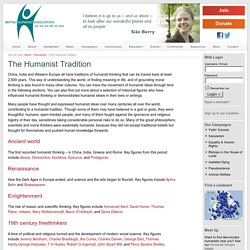

What Becomes of the Human after Humanism. What Becomes of the Human after Humanism? Heidegger and Derrida Rex Gilliland, Does the human being have a future? Is it a concept that has outlived its usefulness, or does it offer unique and indispensable resources that we have hardly begun to consider? In the latter half of the twentieth century, the status of the human being was a pervasive issue in both continental and Anglo-American thought. Although the humanism/anti-humanism debate in postwar France gravitated toward these extremes, perhaps there are still resources to be found there that will assist us in formulating a more subtle conception of the human being.
Although it is commonly held that Heidegger marginalizes the human being in his later thought by turning his focus from Dasein to being, the “Letter on ‘Humanism’” shows that the shift, if there is one, is not nearly so extreme. If it is clear that the human being remains a central theme for Heidegger, its status still remains in question. Humanism, Derrida, and the new humanities. Deridā un humānisms. Foucault and critique: Kant, humanism and the human sciences.
Mark OlssenUniversity of Surrey Paper presented at the British Educational Research Association Annual Conference, Heriot-Watt University, Edinburgh, 11-13 September 2003 A critique is not a matter of saying that things are not right as they are. It is a matter of pointing out on what kinds of assumptions, what kinds of familiar, unchallenged, unconsidered modes of thought, the practices that we accept rest.... Criticism is a matter of flushing out that thought and trying to change it: to show that things are not as self-evident as we believed, to see that what is accepted as self-evident will no longer be accepted as such. Practising criticism is a matter of making facile gestures difficult. Critique, for Foucault, aims at identifying and exposing the unrecognised forms of power in people's lives, to expose and move beyond the forms in which we are entrapped in relation to the diverse ways that we act and think. Fuko un humānisms.
Cilvēka gals Fuko un humānisms. Calvert-minor_june2010. Foucault's Anti-Humanism. Golder. Sartre-existentialism-squashed. Thinking Being Human: Notes on Heidegger’s “Letter on Humanism” « Be Late. MARTIN%20HEIDEGGER%20ON%20HUMANISM. Existentialism is a Humanism. Sartre's "The Humanism of Existentialism," UC Davis Philosophy 1, G. J. Mattey. Chapter 7: Applying Humanism To Social Problems. Previous Chapter | Table of Contents | Next Chapter Humanism as a Spur to Action Humanism gives a point of view not only valid in personal and psychological matters but in the social and economic situations of our time.

It is a stimulus and a guide to making better sense out of our complex, jumbled world. “Our supreme responsibility is the moral obligation to be intelligent,” according to humanist pioneer Oliver L. Reiser. If ever there was a point of view which inspires considered action, and the application of theory to practice, it is that of humanism. Consider these central ideas. This viewpoint badgers us by saying that we can look only to ourselves for help and then encourages us by saying that we do not need any other help.
The Dream Humanists are interested in making this a better world. They dream of a world in which people can feel self-esteem, find outlets for their energies and opportunities to use their capacities, and have meaningful employment. Freedom for All Social Action. What is Humanism>? HUMANISM is a progressive philosophy of life that, without supernaturalism, affirms our ability and responsibility to lead ethical lives of personal fulfillment that aspire to the greater good of humanity. THE MISSION of Humanists of Utah, as a chapter of the American Humanist Association, is to be a clear; democratic voice for humanism in Utah, to increase public awareness and acceptance of humanism, to establish, protect and promote the position of humanists in our society, and to develop and advance humanist thought and action.
The Humanist Tradition. China, India and Western Europe all have traditions of humanist thinking that can be traced back at least 2,500 years.

This way of understanding the world, of finding meaning in life, and of grounding moral thinking is also found in many other cultures. You can trace the movement of humanist ideas through time in the following sections. You can also find out more about a selection of historical figures who have influenced humanist thinking or demonstrated humanist ideals in their lives or writings. Many people have thought and expressed humanist ideas over many centuries all over the world, contributing to a humanist tradition. Social_Theory_in_Context. Social and Personal Transformation through Active Non-Violence. Baldwin%20-%20Humanism.